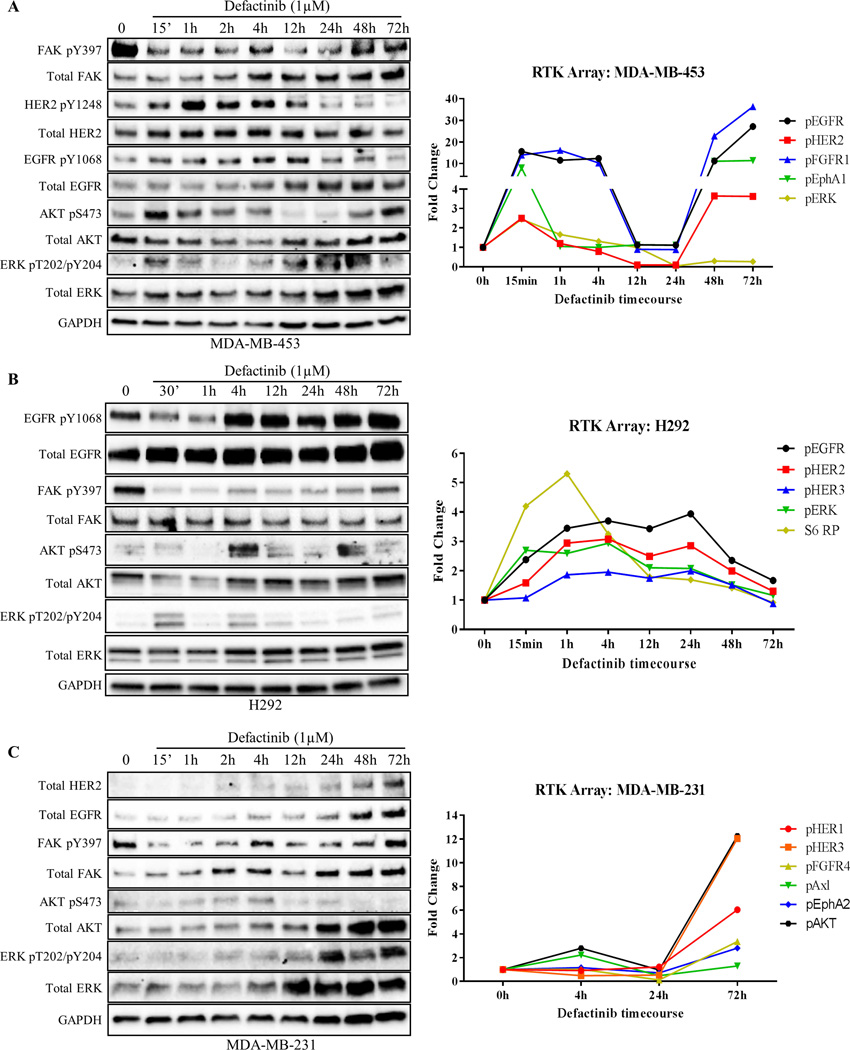Fig. 5. Cancer cells demonstrate rapid and long-term compensatory RTK reprogramming to defactinib.
(A) Timecourse experiment where HER2+ breast cancer cells (MDA-MB-453) were treated with FAK-kinase inhibitor (defactinib) for the indicated timepoints. Note; defactinib induced EGFR/HER2 and AKT/ERK phosphorylation within 15 min of treatment. RTK arrays were performed (right panel) with matched immunoblot confirming results. (B) Timecourse experiment where EGFR+ lung cancer cells (H292) were treated with defactinib showing rapid compensatory RTK reprogramming. RTK arrays (right panel) showed activation of EGFR, ERK, and S6RP within 30 min. (C) Timecourse experiment where triple-negative breast cancer cells (MDA-MB-231) were treated with defactinib showing long-term (72h) RTK reprogramming in MDA-MB-231 cells. Note, initially HER2− cells were found to have low levels of HER2 at 2–4 hours and high levels at 48–72 hours after defactinib treatment. RTK arrays (right panel) showed upregulation of additional RTKs, FGFR4 and EphA2, 72 hours after treatment. Immunoblot images shown are representative of three independent experiments. Densitometry and statistical analysis is found in Fig. S12. RTK array results represent results from one RTK array chip (Supplementary Table S2).

